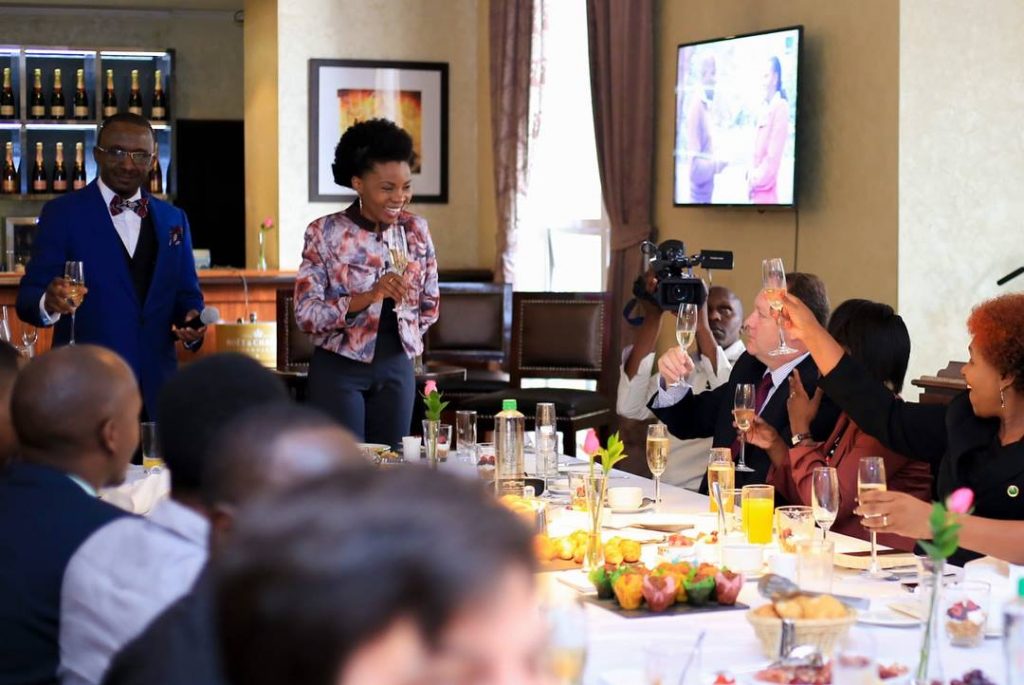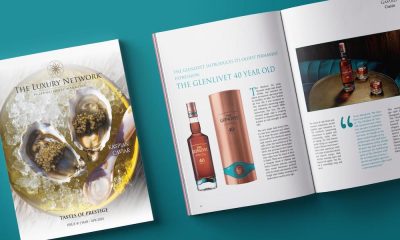The Luxury Network Kenya Members Discuss Consumption of Luxury in Africa
27th April 2018
Moët & Chandon in partnership with The Luxury Network Kenya engaged the Kenya media and a few special guests in a conversation about consumption of luxury in Kenya and East Africa.
The topic revolved around the unique and challenging environment that Africa presents for brands and how the region can emerge as a destination as well as a source for luxury brands.
The panel had a special international guest, Pierre-Louis Araud, who is dedicated to Private Clients and Business Development in Africa and Middle East for Moët & Chandon. He shared his experience and passionate relationship with champagne and the Maison Moët & Chandon. Pierre-Louis added that Kenya has realized great growth in champagne consumption leading in East Africa. Pierre-Louis also believes that as African economies improve and the middle class grows, consumption of Champagne will increase as tastes and lifestyles evolve.

Other partners present were DT Dobie/CFAO MD Ian Middleton and Panesar Interiors‘ Bhavir Panesar, who shed light on how their businesses have grown in leaps and bounds over the last seven decades. Also present was Aggrey Oriwo of IPSOS who shared insights from the 2016 Africa Affluent Study that carried was out across 7 African cities.
The conversation was moderated by Michael Mwai, a director at The Luxury Network Kenya. He observed that the luxury and premium segment in Kenya is ready for pivotal growth never seen before as both consumers and retailers interact more closely via digital media. There is evidence that consumption trends are changing and a more discerning consumer is emerging amongst the millennials.

According to Aggrey Oriwo of IPSOS, 40% of Africa’s affluent millennials aged between 21 and 34. 17% made over 6 air trips in the last 12 months. Two out of 10 stayed in upmarket four or five-star hotels or upscale resorts. Two out of three bought luxury products of any kind in the past year. 66% own a smart phone, tablet and laptop. One out of eight have a wearable device such as a smart watch or smart glasses.
There is a changing attitude and the African affluent is now very concerned about personal growth, the environment, social responsibility and is willing to pay more for environmentally friendly products.

The 2016 African Affluent report that was conducted in seven countries also captured what consumers do for business and pleasure. It picked out what they purchase and why and how they behave and express themselves. The full picture of an affluent African’s life was split into five categories, Business Life, Leisure, Travel, Device Ownership and Product Ownership.
Panesar’s Kenya has been designing and selling bespoke luxury furniture in Kenya for 70 years. Vir says they are expanding their product line to serve a younger client that is looking for specially crafted furniture that is exquisite, built to last and trendy.

DT Dobie has been in the local market for almost 70 years and has distributed seven global brands. Today they sell and market Mercedes, Volkswagen and Great Wall Motors across the country. CFAO Automotive boasts Africa’s most extensive network spanning 34 African countries. It has 6,100 employees and 133 sales and after sales locations in its 54 subsidiaries across African continent.
Mercedes Benz, who are leaders in design and manufacture of luxury automobiles, are now shaping the smart vehicle conversation. While the autonomous vehicle may be many years away, it presents a new dimension in advanced mobility. It also opens up new opportunities for other luxury segments as consumers find more time in transit to shop online. Tomorrow’s advanced vehicle should be more efficient and safer as it shall communicate with other cars as well as infrastructure.
